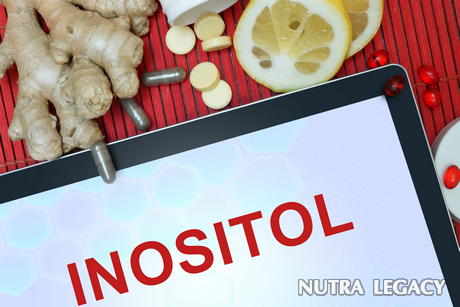What is Inositol?
It’s funny how some vitamins, minerals and essential nutrients get special attention. They catch on, ride the wave of trendy media hype and become cemented in the lexicon of popular health and well-being while others, like inositol, remain relatively obscure. Although it may sound like a brand name pharmaceutical miracle drug, inositol is actually a simple and valuable carbohydrate (sugar). Occasionally, inositol is lumped in with the vitamin B complex. Although inositol works extremely well in conjunction with the B vitamins and with choline, it is not a true vitamin.

Inositol can be synthesized from both plant and animal sources. As a plant fiber, it is known as phytate. In either form, the carbohydrate helps maintain balance and plays a vital role in several body functions. These include hair growth, the production of glucose, the communication between neurons in the nervous system, the control of estrogen levels, the distribution of important fats, the maintenance of cell membranes (especially specialized cell membranes such as the brain, intestines and bone marrow) and the constant battle against free radicals and cancer.
Like many essential nutrients, the human body is, in fact, capable of generating its own inositol. However, the amount is rarely enough to rule out using valuable inositol supplements.
According to information on www.ultimatefatburner.com, “When used as a supplement, equal amounts of choline should be taken with inositol. The entire B complex, as well as vitamins C and E, folic acid and linoleic acid are thought to increase the function of inositol, so it is often part of a multivitamin and mineral supplement.”
Inositol supplements are generally applied to mood disorders and the suppression of panic attacks, anxiety, attention deficit disorder and depression with almost no side effects. However, smaller doses are effective as a preventative measure or as a means of preserving overall homeostasis.
An inositol deficiency can lead to a myriad of inconveniencies including eczema, constipation, hair loss, vision problems and high cholesterol, so dietary sources and/or supplements are definitely recommended. Foods that contain a good amount of inositol include brown rice, liver, veal, nuts, bananas, raisins, wheat germ, wheat bran and the consistently amazing Brewer’s yeast.
Hopefully, we’ve now shed some light on one of the less popular nutrients out there. They’re all for the taking and a little information can go a long way in sustaining good health.
The information supplied in this article is not to be considered as medical advice and is for educational purposes only.
|
| ||||||||||||||





 14 Mar 2014
14 Mar 2014